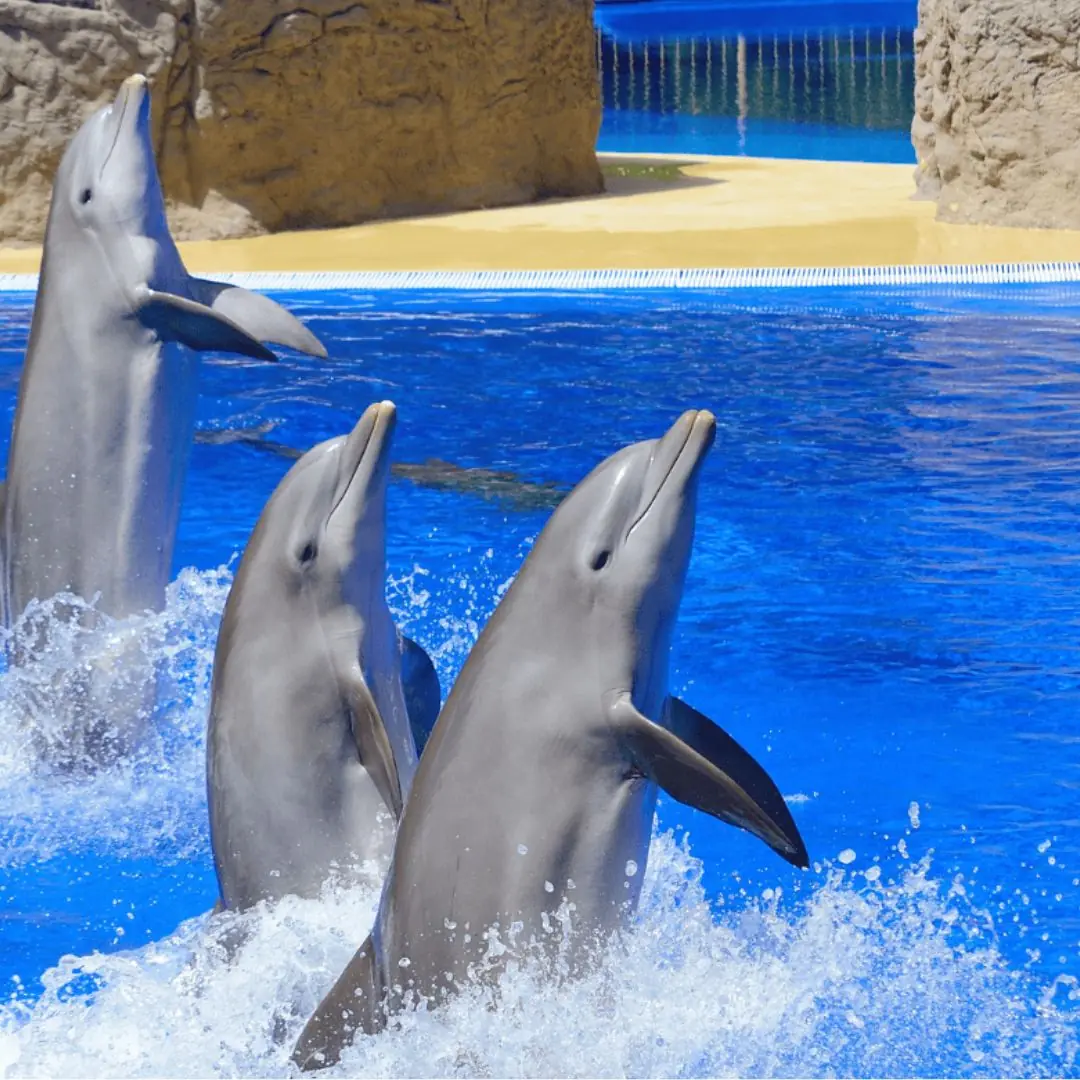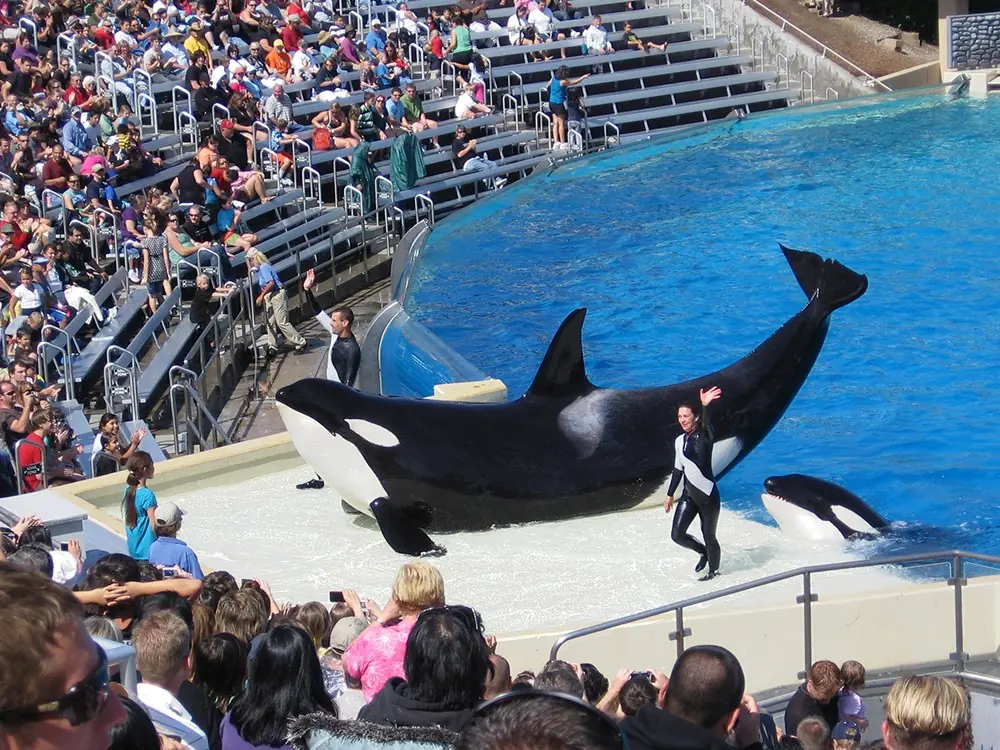
Marine Animal Shows Are Officially Banned in Mexico After Historic Legislative Vote

In a major win for animal welfare, Mexico’s government has officially said “no more dolphin shows.” Both the Senate and the Chamber of Deputies (Mexico’s two main lawmaking bodies) voted to ban the use of dolphins in entertainment, including shows, therapy programs, and even research—unless it’s related to species conservation. That’s not all: the law also puts a stop to breeding dolphins in captivity altogether.
What Happens to the Dolphins Already in Captivity?
The new law doesn’t mean that dolphins currently living in marine parks will suddenly be released. Instead, these dolphins will remain in their current enclosures—but under stricter welfare guidelines. This means facilities are now legally required to provide care that meets the animals’ natural physical and behavioral needs, for the rest of their lives.
In short, while the doors to dolphin shows are closing, the responsibility to care for these animals isn’t going anywhere.
Why Did Mexico Do This?
This decision follows years of pressure from scientists, animal rights groups, and members of the public. It also came shortly after a well-known dolphinarium in Riviera Maya had to shut down its shows due to widespread backlash and concern for the animals’ welfare.
Behind the scenes, the world of dolphin entertainment isn’t all sparkles and smiles. According to investigations by groups like World Animal Protection, the reality for dolphins in captivity is far from idyllic.
The Dark Side of Dolphin Shows
Here are some of the troubling facts campaigners have uncovered:
- Over 300 dolphins have been used in Mexico’s entertainment industry over the past few decades.
- Many of these dolphins were born in tanks, never experiencing the open ocean.
- Dolphins in captivity often show signs of chronic stress, abnormal behaviors, and illnesses that are directly tied to confinement and forced performances.
Basically, while dolphins may look happy performing tricks, science shows they’re often anything but.
“A Major Milestone,” Say Activists
Eugenia Mora, a campaigner for World Animal Protection, called the new law a “historic milestone” and urged other countries to follow suit. “We’ve documented suffering in dolphinariums not just in Mexico, but globally—from Spain to other corners of the world,” she said.
And this isn’t just about feelings—back in 2022, more than 100 scientists backed a public statement condemning dolphin captivity, warning of both physical and psychological harm caused by the tourism and entertainment industries.
How Mexico Compares to Other Countries
With this new ban, Mexico joins Costa Rica and Chile as one of only three Latin American countries to completely outlaw dolphin shows and captive breeding. Other nations have made similar strides—Spain, for instance, has banned wild animals in circuses, though its dolphinariums still operate.
Animal rights organizations aren’t backing down. At a recent protest in Valencia, Spain, a large satirical sculpture known as a falla was displayed outside a marine park to raise awareness and demand the release of captive dolphins.
There’s a Better Way to See Wildlife
If you love dolphins—and who doesn’t?—there’s a better way to admire them than from a stadium seat. Responsible wildlife tourism allows you to watch animals in their natural habitats without causing them harm.
Instead of paying to see dolphins in tanks, consider joining tours that promote ethical animal encounters. These tours not only protect the animals but also help preserve the environment they live in. Initiatives like Whale Heritage Sites are already doing this, giving people incredible experiences with nature while supporting local conservation efforts.
The Fight Isn’t Over—Yet
Mexico’s ban is a huge step forward, but the movement to end dolphin captivity is far from finished. Organizations around the world are continuing their campaigns to shut down dolphinariums and ensure that no more dolphins are bred, captured, or forced to perform.
As more countries take action, the hope is clear: a future where dolphins swim freely in the oceans—not circles in a tank.
🐋 Canada’s “Free Willy” Law Just Changed the Game for Captive Whales and Dolphins
In a sweeping decision that made waves across the globe, Canada has officially banned the captivity of whales and dolphins for entertainment. The law—nicknamed the “Free Willy” law after the beloved 1993 film about a boy who frees an orca—marks a powerful shift in how the country views marine mammal rights and animal welfare as a whole.
What the New Law Actually Does
Passed in 2019, the legislation—officially known as Bill S-203: The Ending the Captivity of Whales and Dolphins Act—makes it illegal for marine parks, aquariums, and other facilities to:
- Keep whales, dolphins, or porpoises (collectively known as cetaceans) in captivity for entertainment purposes
- Breed these animals in captivity
- Acquire new cetaceans, whether through capture or trade
In short, it means: no new whales or dolphins can be put into tanks in Canada. And the animals that are already in captivity? They must be cared for with dignity and in accordance with strict animal welfare standards, but they won’t be released—mainly due to concerns about their survival in the wild after a life in confinement.
A Win for Animal Rights—and Public Opinion
This law wasn’t just the work of politicians. It followed years of public pressure, protests, petitions, and scientific reports exposing the toll that confinement takes on highly intelligent, social marine mammals.
Groups like the Humane Society International/Canada, Animal Justice, and Marine Animal Rescue campaigned tirelessly to expose the ethical and psychological costs of keeping cetaceans in concrete tanks. And it worked—Canadians were listening.
Most citizens came to agree: whales and dolphins belong in the ocean, not on display doing tricks for ticket sales.
Why Captivity Is So Problematic
Cetaceans aren’t your average zoo animal. They’re wide-roaming, deep-diving, echo-locating marvels that often travel hundreds of miles in a single week in the wild. In captivity, however, they’re limited to swimming circles in tanks that, comparatively, are the size of bathtubs.
Here’s what happens when these creatures are confined:
- Mental stress and boredom: Studies show dolphins and whales exhibit repetitive behaviors, signs of anxiety, and even self-harm in captivity.
- Shortened lifespans: While wild orcas can live up to 80 or more years, captive ones often die in their teens or twenties.
- Broken family bonds: In the wild, many cetaceans live in tight-knit pods for life. Captivity often separates calves from mothers and forces unrelated animals into artificial social groups.
The result? Animals who may look like they’re smiling are actually enduring silent suffering.
What About Canada’s Existing Facilities?
At the time the law passed, only two places in Canada kept cetaceans: Marineland in Ontario and the Vancouver Aquarium.
- Marineland housed dozens of dolphins and a few belugas. Under the new law, they are not allowed to breed or add new animals to their tanks.
- Vancouver Aquarium pledged to phase out cetacean captivity even before the law passed and has since shifted focus to marine rescue and rehabilitation.
The law includes some exceptions for animals rescued and rehabilitated for medical reasons, but even then, long-term captivity must be approved by the government and must serve the animal’s welfare—not human entertainment.
The Global Ripple Effect
Canada’s decision was widely applauded by international animal welfare organizations, who hope other countries will follow suit.
It’s not alone. A growing number of countries have banned or restricted cetacean captivity, including:
- India – Declared dolphins “non-human persons” in 2013 and banned their captivity altogether
- France – Banned captive breeding of dolphins and orcas
- Chile and Costa Rica – Prohibited dolphinariums and marine mammal shows
- Mexico – Just passed a similar ban in 2025
Meanwhile, public sentiment around the world is shifting. The once-popular dolphin shows of the 90s are increasingly seen as outdated, unethical relics of the past.
News in the same category


The U.S. Ranks the “World’s Best Vegetables”

Why hotel rooms are usually not numbered 420

Put a Handful of Salt in the Fridge A Golden Trick Everyone Wants to Try After Reading

Do This Instead to Keep Them Fresh for a Whole Year

6 dishwashing habits that "invite trouble" that many families are making!

Alzheimer’s May Not Originate in the Brain, Scientists Suggest

Beleaguered Weather Service defends its forecasts as Texas officials point fingers over flood warnings

A Glass of Milk a Day Could Help Lower Women's Risk of Color.ec.tal Can.cer

A Common Ingredient in Energy Drinks May Be Linked to Blo.od Can.cer

What Your Finger Length Could Reveal About Your Cardio Fitness

Is 'Razor Blade Throat' Really a Sign of the Newest COVID Variant?

USA: Successfully tested a special dru.g that can elimi.nate up to 70 types of can.cer

See These 5 Fish at the Market? Grab Them Before They're Gone

Naming the phenomenon of not being able to wake up from a dream and related problems

Which Causes a Cold More Easily: Fan or Air Conditioner?

Don’t Install Ceiling Fans in These 4 Areas of Your Home

People Who Regularly Eat Cucumbers May Experience 3 Remarkable Changes Over Time

5 cheap household items that can bring can,cer to the whole family
News Post

A "treasure" tree for humans, picking seeds and selling them can also make a lot of money

Warning: 5 fatal mistakes when using electric kettles: Number 4 is made by many people, doctors advise to fix it immediately

6 plants in their house: Drive away evil spirits, attract money, and bring good fortune to their children

8 Cooking Habits That Make Your Family Eat Twice as Much Carcinogens

Closing the door when turning on the air conditioner is not necessarily good, experts show what to do

4 common mistakes when eating breakfast that seriously d.a.mage the stomach but few people notice

I spotted 10 ducks—did you get the same number?

The U.S. Ranks the “World’s Best Vegetables”

Warning: 5 Dangerous Mistakes When Using an Electric Kettle

Look at the shape of your nose to predict your destiny and fortune for life

Why hotel rooms are usually not numbered 420

Put a Handful of Salt in the Fridge A Golden Trick Everyone Wants to Try After Reading

Living With My Husband’s Stepson—Just 8 Years Younger Than Me—Has Left Me Speechless More Than Once

Pork Storage Hack: Don’t Put It Straight in the Fridge

Do This Instead to Keep Them Fresh for a Whole Year

“2 Pains – 1 Yellow”: A Warning Sign Liv.er Can.cer May Be Silently Developing

Shiny, Dust-Free Wooden Floors for a Whole Month

6 dishwashing habits that "invite trouble" that many families are making!
